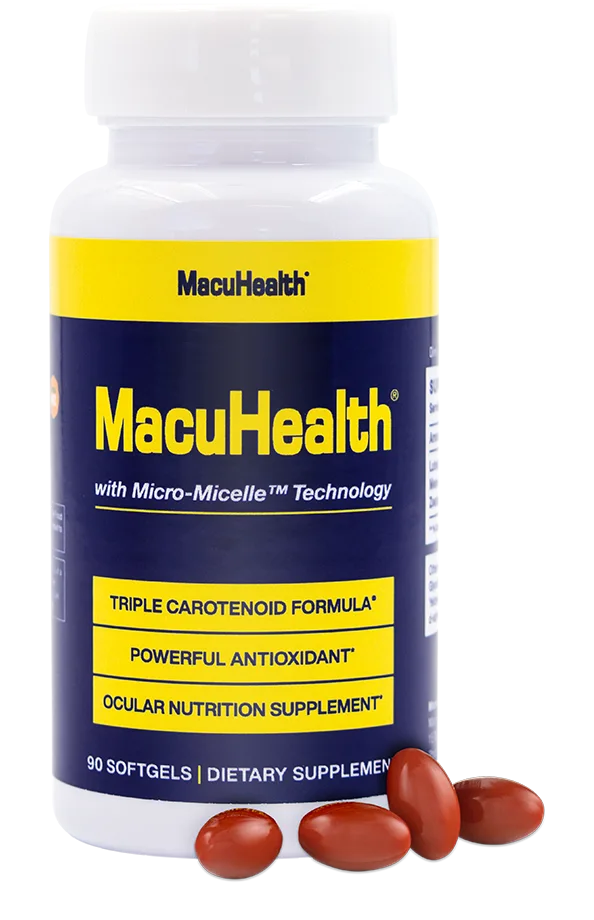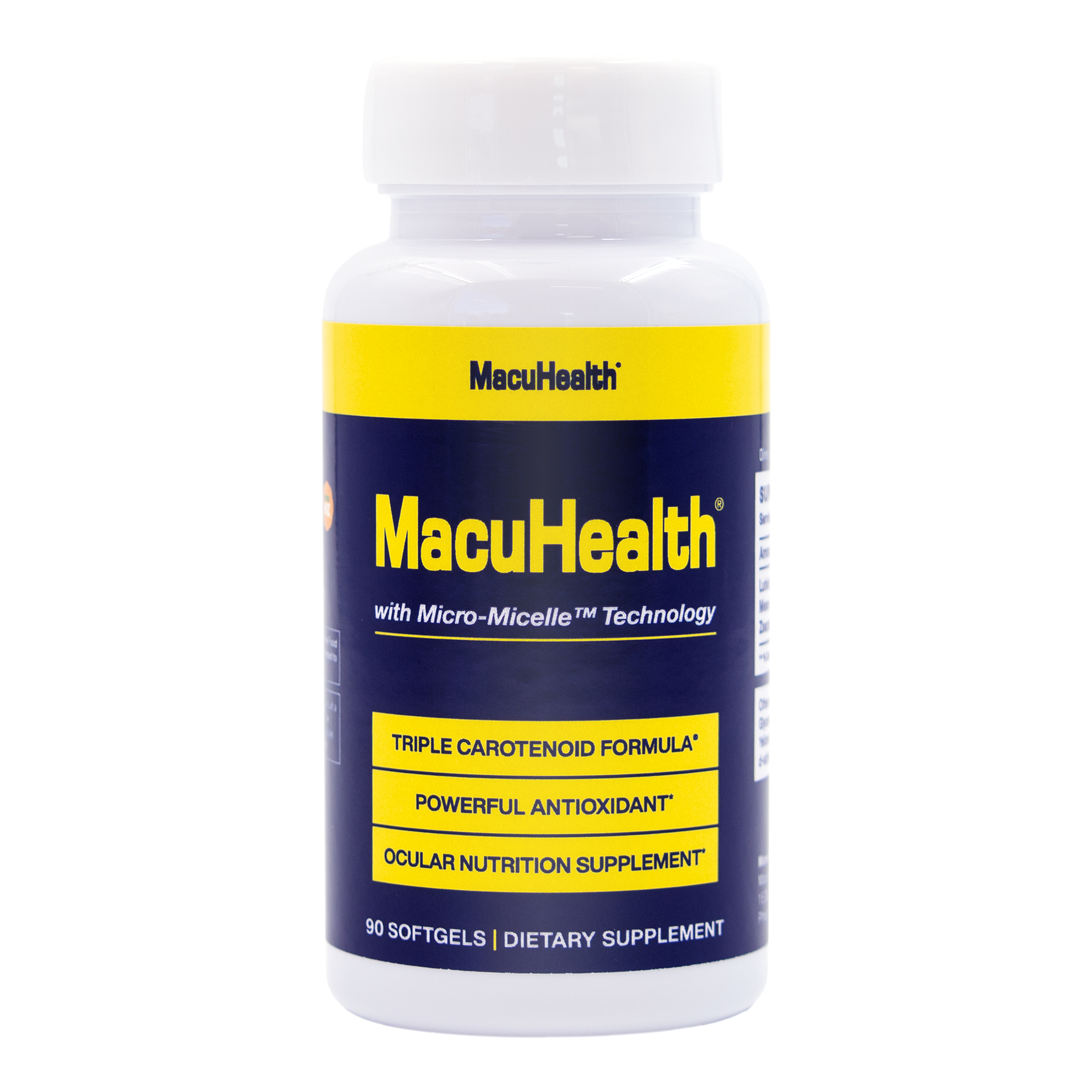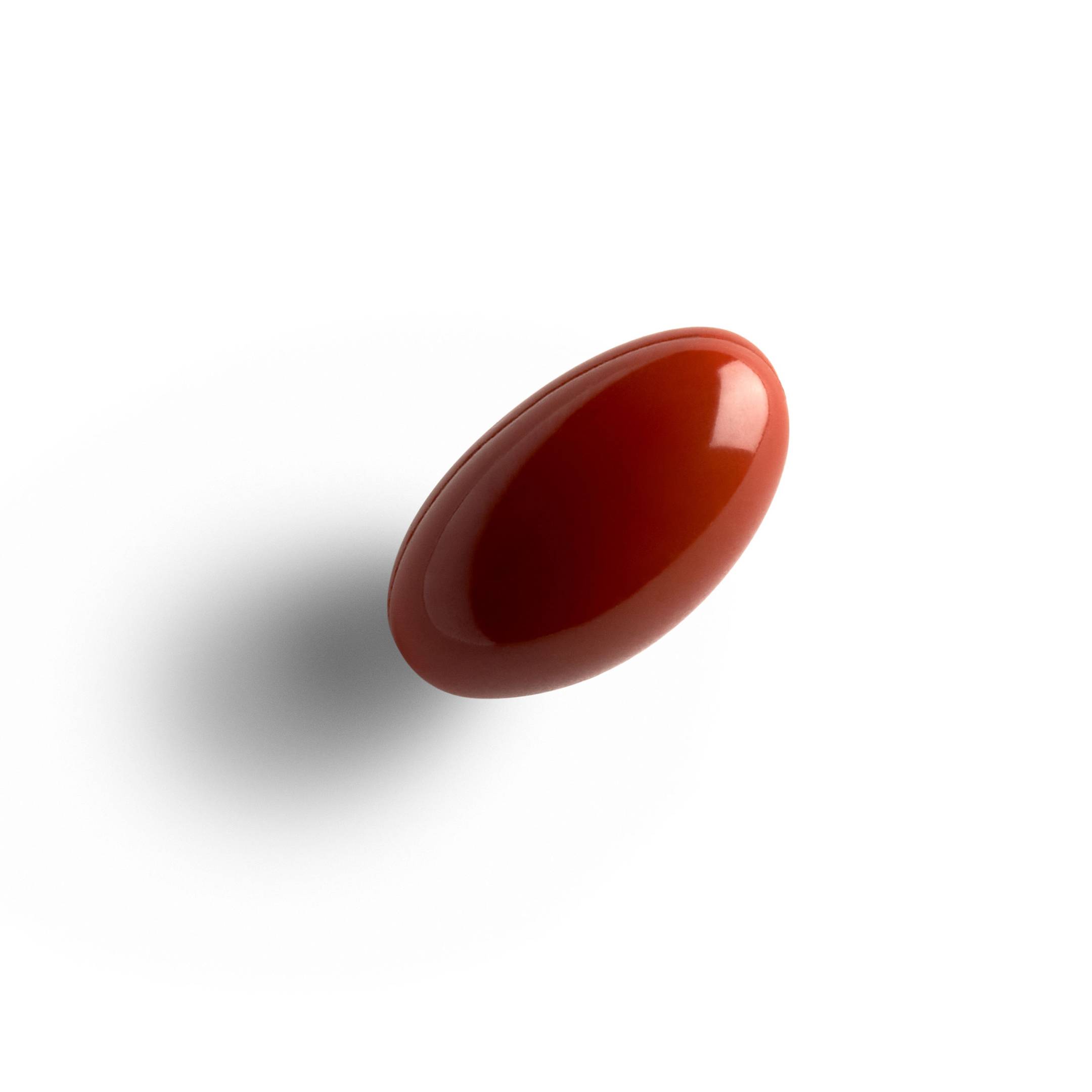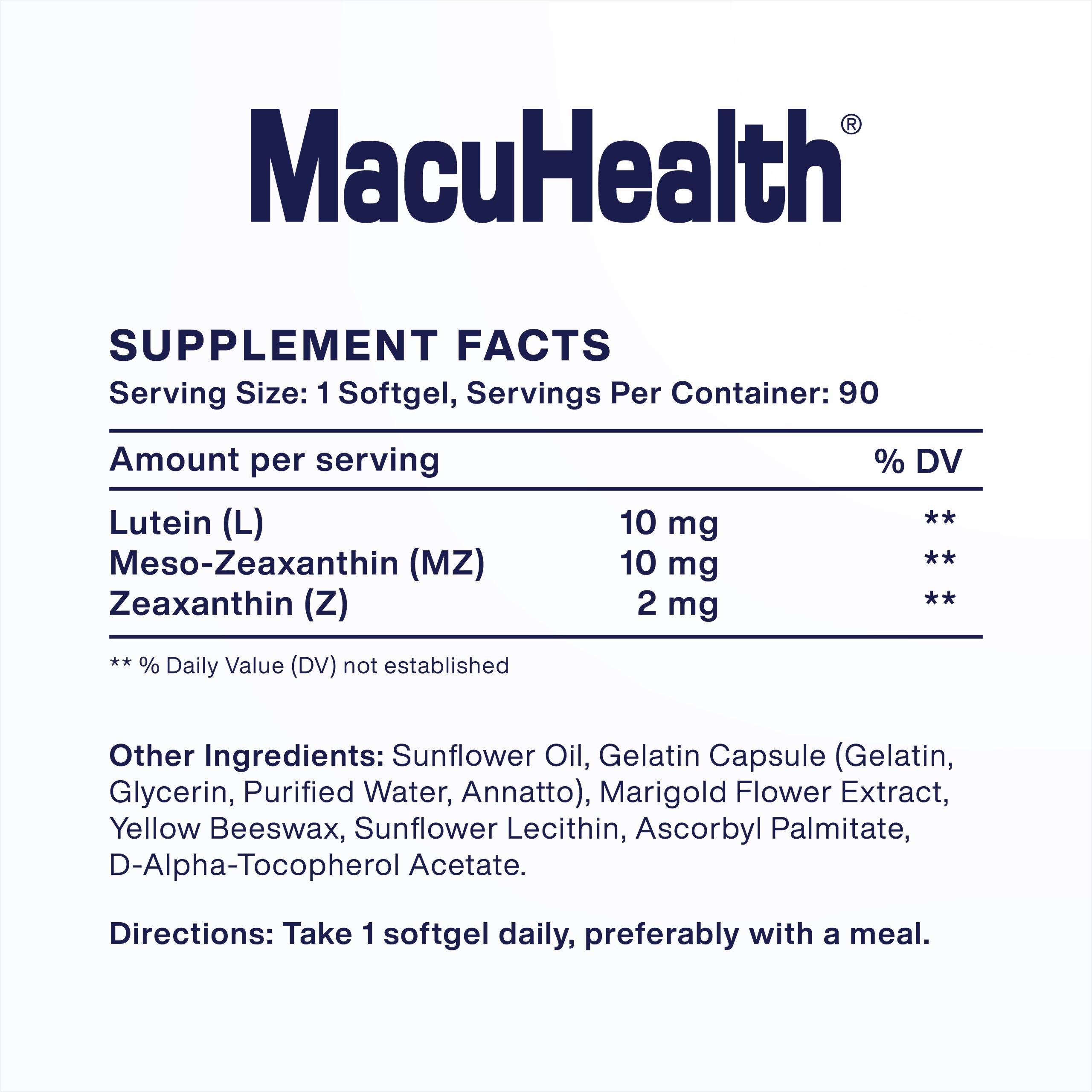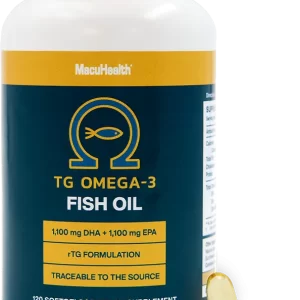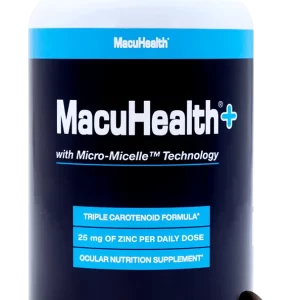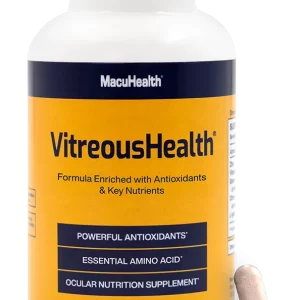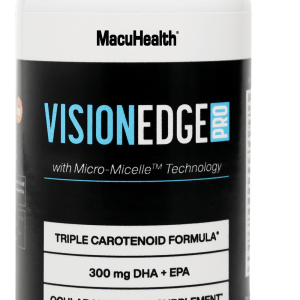$82.95
MacuHealth is based on 20 years of science: The 10:10:2 ratio of Meso-Zeaxanthin, Lutein, and Zeaxanthin has been demonstrated to increase macular pigment density, which supports visual health.
Description
MacuHealth is based on 20 years of science: The 10:10:2 ratio of Meso-Zeaxanthin, Lutein, and Zeaxanthin has been demonstrated to increase macular pigment density, which supports visual health.
Ingredients
Active Ingredients
- Lutein 10 mg
- Meso-Zeaxanthin 10 mg
- Zeaxanthin 2 mg
Inactive Ingredients
- Sunflower Oil – 506 mg (67.5%)
- Gelatin Capsule (Gelatin, Glycerin, Purified Water, Annatto)
- Marigold Flower Extract
- Yellow Beeswax
- Sunflower Lecithin
- Ascorbyl Palmitate
- D-Alpha Tocopherol (Vitamin E 3.75 IU (.05%)
Supplement Certified™
Supplement Certified, performed by the Nutrition Research Centre Ireland, means that the product has undergone independent 3rd party analysis to confirm that the active ingredients are present in the supplement and match their quantity label claim. Only products that are Supplement Certified can claim stability and quality of ingredients for the consumer.
Directions
Take 1 softgel daily, preferably with a meal
Do not exceed stated dose

